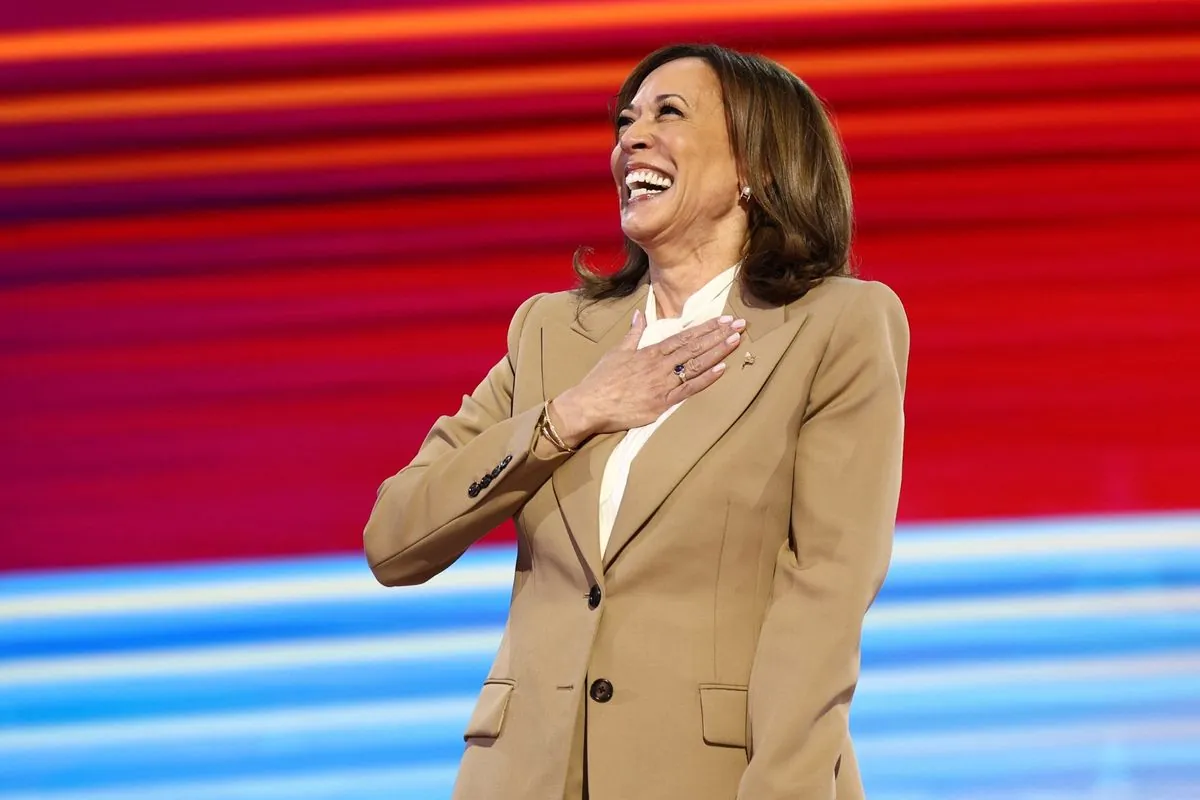In a strategic move to energize voters in a critical battleground state, Vice President Kamala Harris and Minnesota Governor Tim Walz held a rally in Milwaukee, Wisconsin, concurrent with the Democratic National Convention in Chicago. The event, which drew over 15,000 supporters to the Fiserv Forum, aimed to translate convention enthusiasm into electoral support in a state that could significantly impact the November 2024 presidential race.
Harris focused her address on the contentious issue of abortion rights, critiquing former President Donald Trump's recent statements. She emphasized the broader context of fundamental freedoms, asserting that these rights are under threat from Republican policies. The Vice President's speech was met with enthusiastic responses from the crowd, including chants of "We're not going back!" and "U-S-A!"
The decision to host a major rally in Wisconsin while the convention proceeded in Chicago underscores the state's electoral importance. Wisconsin, which joined the Union in 1848 as the 30th state, has a history of close presidential contests. In 2020, President Joe Biden secured victory by a margin of approximately 20,000 votes, reversing Trump's narrow win in 2016.
Current polling indicates a tight race, with Harris holding a slim 2-point lead over Trump in Wisconsin. The state's 10 electoral votes are considered crucial for both campaigns' paths to victory. Wisconsin's political significance extends beyond the presidential race, with an important Senate contest featuring incumbent Democratic Senator Tammy Baldwin against Republican businessman Eric Hovde.
Wisconsin's rich history and diverse landscape contribute to its unique political character. Known as "America's Dairyland," the state is a leading producer of cheese and dairy products. Its largest city, Milwaukee, famous for its brewing heritage, is also home to the Harley-Davidson Motor Company, founded in 1903. The state's natural beauty, including over 15,000 lakes and 84,000 miles of rivers and streams, attracts tourists and nature enthusiasts alike.
The Democratic strategy in Wisconsin appears to focus on driving high turnout in urban areas like Milwaukee and its suburbs. Meanwhile, the Republican campaign, led by Trump and his running mate Senator JD Vance, is counting on strong support from rural voters to remain competitive.
As the election approaches, both parties are intensifying their efforts in Wisconsin. The state's history as a progressive stronghold in the early 20th century and its current status as a pivotal swing state make it a fascinating battleground in the upcoming presidential election.
"People don't know the real Kamala. She's so far left that nobody can even imagine."
This heightened focus on Wisconsin reflects the state's potential to shape the nation's political future, continuing its tradition of playing a decisive role in presidential elections.
